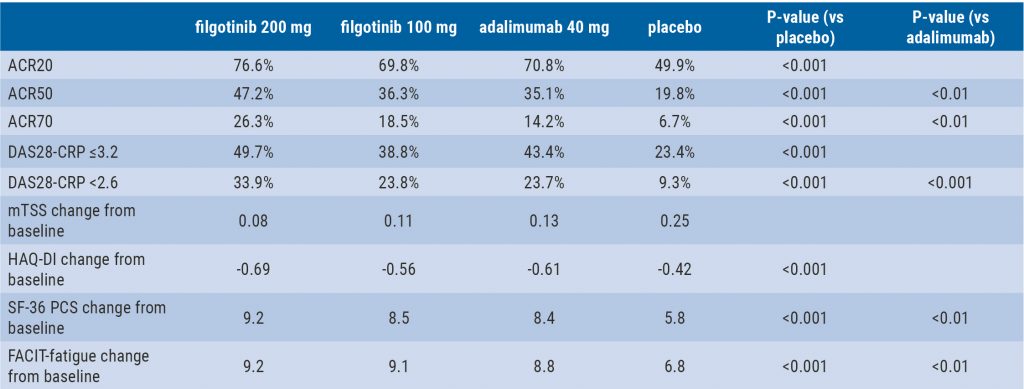"Many of the approximately 40 or so recommendations are similar to the recommendations that were published five years ago, but there are some notable differences," said Dr. Liana Fraenkel of the Yale University School of Medicine, in New Haven, Connecticut, at a press briefing November 9 during ACR Convergence, the group's 2020 virtual annual meeting.
One is a new emphasis on starting patients on methotrexate and sticking with the drug instead of rapidly switching to another disease-modifying anti-rheumatic drug (DMARD).
"There is an emphasis on using methotrexate across many of the clinical scenarios, with the exception of patients with low disease activity where there is room for other medications, including hydroxychloroquine and sulfasalazine. But otherwise, there's really a strong emphasis on using methotrexate and maximizing methotrexate using various means before adding or switching to a biologic or JAK inhibitor," she told the briefing.
The new guidelines also emphasize minimizing the use of glucocorticoids to treat RA inflammation. "This conditional recommendation was based on the significant side effects of steroids," Dr. Fraenkel said in a news release.
"The panel recognized how important prednisone and low-dose prednisone are as bridging therapies, as well as for patients who simply are not responding to our now many, many medications," she told the briefing. Yet, at the same time, the panel "felt very strongly that the default should not be to use prednisone, and that we should really be trying to maximize disease-modifying anti-rheumatic drugs, and try to push the needle away from using prednisone as frequently as we do."
The updated recommendations also advise rheumatologists to add a biologic or a targeted synthetic DMARD instead of switching patients to triple therapy.
The guidelines include specific recommendations on drug tapering and treatment of patient populations not covered in previous guidelines, including those with subcutaneous nodules, pulmonary disease, non-alcoholic fatty liver disease, persistent hypogammaglobulinemia and non-tuberculous mycobacterial lung disease.
Dr. Fraenkel noted that these guidelines are specifically focused on pharmacologic agents. "There will be guidelines forthcoming on nonpharmacologic management of rheumatoid arthritis that we recognize as being extremely important," she said.
The manuscript, containing the full list of recommendations and supporting evidence, is currently under review and is anticipated to be simultaneously published in Arthritis Care and Research and Arthritis and Rheumatology later this year, pending completion of peer review.
Briefing moderator Dr. Dylan Thomas, a rheumatologist in private practice in Greenbelt, Maryland, said due to the "exploding" amount of new therapies and improved management tools for patients with RA, "we truly do need guidance from the experts, people who can critically evaluate the medical literature."
The ACR guidelines are "an important need in clinical practice." However, it's important to remember that this is a "living" document and that will change as more therapies for RA emerge," Dr. Thomas said.
By Megan Brooks
SOURCE: https://bit.ly/3eJdNai ACR Convergence 2020, presented November 9, 2020.
Posted on
Previous Article
« More evidence links MCP-1 levels to cardiovascular mortality Next Article
Multivessel PCI gaining favor as STEMI therapy »
« More evidence links MCP-1 levels to cardiovascular mortality Next Article
Multivessel PCI gaining favor as STEMI therapy »
Related Articles

September 4, 2019
Cohort study shows improvement during 25 years of RA treatment
© 2024 Medicom Medical Publishers. All rights reserved. Terms and Conditions | Privacy Policy
HEAD OFFICE
Laarderhoogtweg 25
1101 EB Amsterdam
The Netherlands
T: +31 85 4012 560
E: publishers@medicom-publishers.com

